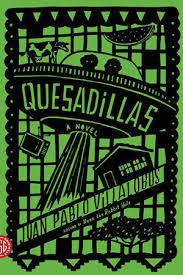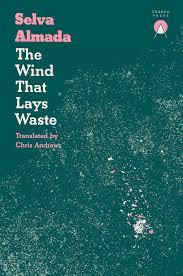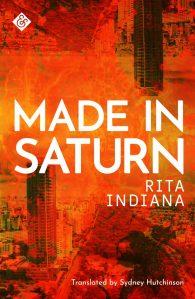Between work and house hunting February was a very light reading month. Just three books! However, they were very good books. March is another story given recent international news, but I’ll speak to that in my next post.
For now, I’m going to cast my mind back to February when I could still commute to work and was looking forward to my then upcoming holiday (Bangkok and Angkor Wat, which were great though I returned to a much changed Britain).
Quesadillas, by Juan Pablo Villalobos and translated by Rosalind Harvey

This is my second Villalobos, after his excellent Down the Rabbit Hole. Rabbit made my end of year list for 2017 and it still stands up very well in memory. I didn’t love Quesadillas quite as much, but it is still very good and if it had been my first Villalobos I’d definitely still have read more.
Orestes and his many, many siblings (all named by their schoolteacher father after Classical Greek figures) live in a small and impoverished house in a slum neighbourhood. Orestes’ parents see themselves as middle class, but that doesn’t mean they have any money and Orestes isn’t so sure.
Every night sees their father shouting at politicians on the tv while the children fight to grab as many of their mother’s quesadillas as they can grasp.
We were well aware of the roller coaster that was the national economy due to the fluctuating thickness of the quesadillas my mother served at home. We’d even invented categories – inflationary quesadillas, normal quesadillas and poor man’s quesadillas – listed in order of greatest affluence to greatest parsimony. The inflationary quesadillas were thick in order to use up the cheese that my mother had bought in a state of panic at the announcement of a new rise in the price of food and the genuine risk that her supermarket bill would go from billions to trillions of pesos.
The normal quesadillas we would have eaten every day if we had lived in a normal country – but if we had been living in a normal country we wouldn’t have been eating quesadillas and so we also called them impossible quesadillas.
Orestes dreams of getting out. After he gets in trouble with newly arrived rich neighbours (an early warning sign of gentrification), and his young twin brothers Castor and Pollux go missing in a supermarket, he makes his escape into an increasingly chaotic Mexico
Life at home was messy and loud. The wider Mexico is that and worse – a country of scams, petty thievery and an increasing breakdown of anything resembling reality. As the novel progresses it gets more and more outlandish – apparently its title in the original Spanish best translates as “If we lived somewhere normal.” But they don’t.
Orestes’ Mexico is not somewhere normal, so normal narrative rules need not apply. What starts naturalist can end fabulist. All you can rely on is that the politicians will always be thieves.
Quesadillas is extremely funny. Orestes has a great narratorial voice – fresh and lively. It’s an angry book, but not a bitter one. It’s laughter in the face of absurdity, because what else is there to do? I have Villalobos’ I’ll Sell You a Dog still left to read and am thoroughly looking forward to it.
Grant wrote a more detailed review of Quesadillas here which as ever is well worth reading.
The Wind that Lays Waste, by Selva Almada and translated by Chris Andrews

Next up is an excellent Argentinian novel. This is a book with only four characters and largely only one location (it would make an excellent play).
Itinerant charismatic preacher the Reverend Pearson has insisted on starting a long drive despite his teenage daughter Leni’s warning that the car won’t make the trip. The Reverend trusts in the lord, but Leni is right and they find themselves breaking down and having to pull into a remote garage.
The garage mechanic is Gringo Brauer, living with his teenage son nicknamed Tapioca. Tapioca is an innocent; Leni is increasingly worldly. What follows is a power struggle between the Reverend and Gringo Brauer as each tries to impose their own philosophy on the other and on the two teenagers.
The Reverend is an evangelical. Everything is god’s purpose. He comes to believe the breakdown was so that he would meet Tapioca, not raised as a Christian, and convert him. Gringo by contrast is a materialist, almost pagan in outlook. He believes in the world he sees, the Reverend in a world unseen.
It’s a powerful and intense book – an espresso novel to use a phrase I’ve used here before. There’s a real sense of four disparate people forced together and forced to see each other, but perhaps not to see themselves.
‘The car will be ready by the end of the afternoon, God willing,’ said the Reverend, mopping his brow again.
‘And if He’s not willing?’ Leni replied, putting on the earphones of the Walkman that was permanently attached to her belt. She hit Play, and her head filled with music.
A big heap of scrap reared behind the house, extending almost to the shoulder of the road: panels, bits of agricultural machinery, wheel rims, piles of tyres; a real cemetery of chassis, axles and twisted bits of metal, immobilised forever under the scorching sun.
Grant has written a much fuller review of this one too, here. It made his Best of 2019 list and I am not a bit surprised. I suspect this justified my subscription with Charco Books on its own.
Made in Saturn, by Rita Indiana and translated by Sydney Hutchinson

Rita Indiana’s first novel, Tentacle, was my personal best novel of 2019. I wrote a bit about it in that post, and a little more in my January 2019 round up post here.
Tentacle featured a transgender man time-travelling from the future with the aid of a psychic anemone to prevent an environmental catastrophe. It sounds terrible doesn’t it? And yet it was great. Muscular, tightly plotted and well written.
Made in Saturn is in one sense a sequel. It features one of the main characters from Tentacle as its protagonist, the artist Argenis Luna, and others crop up again in supporting roles. However, you could read this without ever having heard of Tentacle and it would stand up perfectly well on its own.
In Tentacle, Argenis is a gifted artist but working in a style overly derivative of Goya. He’s a junkie, a misogynist and fiercely homophobic (apparently due to being so strongly in denial about is own true sexuality).
Saturn takes place some time after Tentacle. Argenis remembers his weird experiences of that book, but writes them off as drug hallucinations and as far as Saturn is concerned he may be right. Otherwise, he’s not much changed.
Argenis’ father is a senior politician and one of the heroes of the Dominican Republic’s revolution. Now running for re-election he sends Argenis to rehab in Cuba. Argenis is a disappointment to his father, to his own personal Saturn (I hadn’t intended to read two books with Greek classical references and questionable politicians in one month but sometimes that’s how things play out).
Argenis is a selfish waste of space, but perhaps not be irredeemably so. If Tentacle showed him descending into a well-deserved personal hell, this is his purgatory. Exiled in Cuba he runs through his heroin-substitute at twice the prescribed rate kidding himself that he’s getting clean, sleeps with his nurse and dreams of a success that he does nothing to work for. It can’t last, and when it falls apart Argenis is forced largely against his will to start taking responsibility for his own life.
That makes this sound uplifting. It isn’t. It’s a novel about hustlers, junkies, and what’s worse politicians. Once again it’s well written and this time with marvellously evocative descriptions of Santo Domingo and of Havana:
On their drive, Havana was looking glorious and desperate, an old woman with legs open, brazenly displaying her wide and empty streets – streets that reminded Argenis of an amusement park; no cars, buses or trams. The people who were coming and going wore an anguish on their faces he could recognize as his own: it was the anguish of having to hustle for everything on the black market, just as he’d hustled for heroin in Santo Domingo.
In a way it’s a coming of age tale. Argenis starting to grow up, to come to terms with his father’s legacy and with their highly dysfunctional relationship. Argenis is an asshole, but he could be more than that. The question is will he find his own path through the world or will he be swallowed by his father’s desires and ambitions?
Highly recommended and, like each of Quesadillas and The Wind that Lays Waste, a strong candidate for my end of year list.
See you all soon and hope isolation isn’t getting you down too much!
Ps. I’ve added links to my 2017, 2018 and 2019 end of year roundups in my Best Books of the Blog tab.
